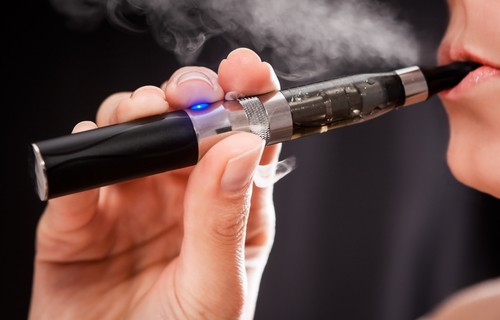Vaping seems to be almost everywhere nowadays — on TV commercials, print advertisements, and radio spots. Sometimes the ads even claim that vaping is a healthier, safer alternative to smoking traditional cigarettes. But how much of that is true? At our dental office in Boerne, we looked into vaping and just how ‘safe’ this safer alternative is. Let’s see what we found.
Whole Body Concerns
Vapes, or e-cigarettes, have been in the U.S. since 2007, but their popularity seems to have increased rapidly over the past few years. Because of this dramatic surge in popularity, science and research regarding these devices is a little behind. But recent studies show us that maybe vaping isn’t as safe as we may have thought. Vaping may be linked to an increased risk of pneumonia, rapid heart rate, congestive heart failure, and stroke. So while we may have once believed vaping was a safer alternative to smoking, that simply may not be the case.
Oral Health Concerns
More research on how vaping affects oral health is needed, but more and more studies continue to find that there are certain risks involved, including:
Dry Mouth
Many vape liquids include the ingredient propylene glycol, which is known to cause dry mouth. Dry mouth, if not treated, can greatly increase the risk of decay, cavities, and gum disease. Not to mention, dry mouth can also cause some serious chronic bad breath, which can be a challenge to overcome.
Inflamed Gums
A 2016 research study found a potential link between vaping and gum disease. To be more specific, vape juice caused an inflammatory response in the gum tissue that can put you at risk for gum disease.
Cell Damage
Vaping may also destroy cells’ DNA and inhibit their ability to divide a grow. Basically, vaping can kill cells and cause bad breath, bone loss, tooth loss, and gum disease.
Focus on Quitting
Even though some people may have started vaping to help them quit smoking, there’s conflicting research regarding its effectiveness. For example, one study found that e-cigarettes helped current smokers reduce the number of cigarettes they smoked by about half, while another suggested that smokers who use e-cigs are 59% less likely to quit. Instead of trading one habit for another, try to focus on proven ways to break away from nicotine once and for all. Consider:
- Work on limiting the number of cigarettes you smoke a day, and decrease over time.
- Try quitting without the use of nicotine replacements — fair warning, this can be extremely difficult.
- Find different ways people have quit. You never know what may work for you. The American Lung Association is a great resource for smokers who want to quit.
Finding what works for you may take time, but don’t give up. Quitting greatly reduces your risk of health problems caused by smoking and vaping.
If you are a smoker or use e-cigarettes, make sure you always see your dentist in Boerne every six months to keep a proactive eye on your oral health and so that any problems such as oral cancer or gum disease can be caught early.

